Can You Put Essential Oils in a Nebulizer
Curious about using essential oils in a nebulizer? Wondering how they work and what benefits they offer? This article will answer all your questions. From explaining what a nebulizer is to discussing the types of essential oils that can be used, we will cover it all.
We will also explore the risks and benefits of using essential oils in a nebulizer, as well as alternatives such as natural oils. Stay tuned to learn how to use essential oils in a nebulizer effectively.
Key Takeaways:
What Is a Nebulizer?
A nebulizer is a medical device used to convert liquid medication into a fine mist for inhalation. It is commonly used for respiratory conditions such as asthma, COPD, and bronchitis.
These conditions often require medication to be directly delivered to the lungs for effective treatment. The nebulizer works by transforming the liquid medicine into aerosol droplets, making it easier for patients to inhale the medication and for it to reach the affected areas in the respiratory system. Nebulizers are particularly helpful for patients who have difficulty using traditional inhalers or need higher doses of medication.
How Does a Nebulizer Work?
A nebulizer works by transforming liquid medication into a mist that can be inhaled directly into the lungs, providing quicker relief compared to oral medications.
When using a nebulizer, the liquid medication is poured into the nebulizer cup, which is then attached to the compressor. The compressor converts the liquid into a fine mist through the process of nebulization. This mist is then inhaled through a mask or mouthpiece by the individual, allowing the medication to reach deep into the lungs, where it is needed most.
Inhaling medication through a nebulizer is particularly beneficial for patients who have difficulty using inhalers or require high doses of medication.
What Are Essential Oils?
Essential oils are concentrated plant extracts that capture the fragrance and beneficial properties of aromatic plants through processes like steam distillation or cold pressing.
These oils are extracted from various parts of plants such as the flowers, leaves, bark, or roots, depending on the specific plant species. Each essential oil contains a unique combination of active compounds that contribute to its distinct aroma and therapeutic effects. These oils have been used for centuries in aromatherapy, traditional medicine, and various wellness practices due to their natural healing properties.
Can You Put Essential Oils in a Nebulizer?
Yes, essential oils can be used in a nebulizer for aromatherapy purposes to help with respiratory symptoms and provide therapeutic benefits through inhalation.
When essential oils are diffused through a nebulizer, the molecules are dispersed into the air in a fine mist, allowing for easy inhalation and absorption. This method ensures that the oil’s properties are delivered directly into the respiratory system, where they can have a targeted and efficient impact.
Combining essential oils with nebulizers enhances their effectiveness and potency, making them an ideal choice for those seeking natural remedies for respiratory issues.
What Are the Benefits of Using Essential Oils in a Nebulizer?
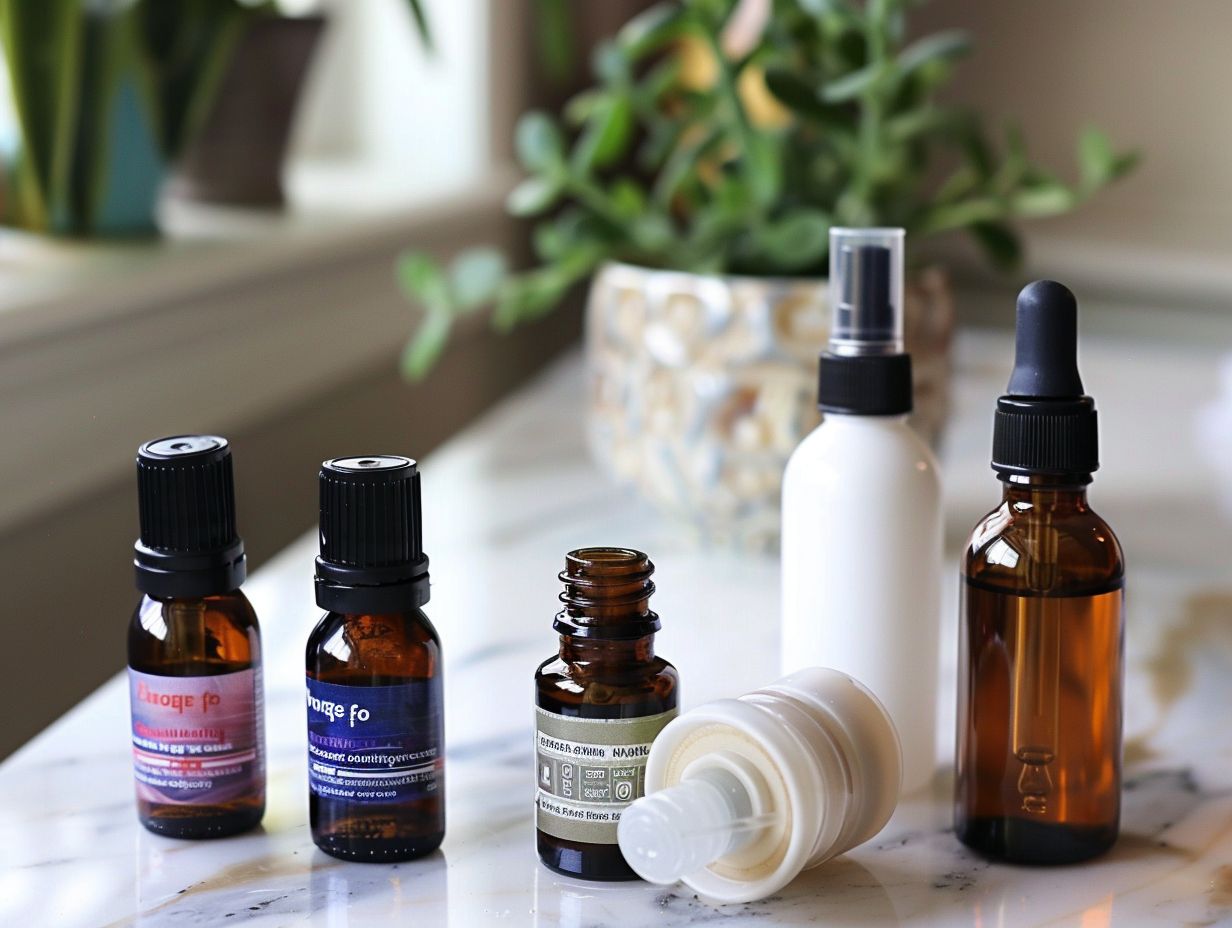
One of the key advantages of using essential oils in nebulizers is their ability to deliver the oils in a highly concentrated form, allowing for maximum effectiveness in addressing various respiratory issues. This targeted delivery system ensures that the potent properties of the oils reach the lungs directly, where they can provide quick relief from congestion, coughing, and other breathing difficulties.
Essential oils used in nebulizers not only improve respiratory health but also have calming effects on the mind and body. The aromatic molecules released into the air during nebulization can help alleviate stress, anxiety, and promote better sleep, making them ideal for relaxation and mental well-being.
What Are the Risks of Using Essential Oils in a Nebulizer?
While beneficial, using essential oils in a nebulizer can pose risks if not properly diluted or if individuals have sensitivities or allergies to specific oils. Safety precautions must be observed to prevent adverse reactions.
One of the primary risks associated with nebulizing essential oils is the potential for respiratory irritation or allergic reactions, especially in individuals with pre-existing conditions, such as asthma or respiratory disorders. Undiluted essential oils can be too potent and may cause skin irritation or chemical burns when exposed directly to the skin. It is crucial to always dilute essential oils properly before using them in a nebulizer to minimize the risk of adverse effects.
Improper usage of essential oils in a nebulizer, such as using oils not recommended for inhalation or exceeding the recommended dosage, can lead to more serious health consequences. Inhaling certain essential oils in high concentrations or for prolonged periods may result in respiratory distress, dizziness, nausea, or headaches. Therefore, it is essential to research and follow proper guidelines for nebulizing essential oils to ensure a safe and beneficial experience.
What Types of Essential Oils Can Be Used in a Nebulizer?
Various essential oils can be used in a nebulizer, including Eucalyptus oil, Peppermint oil, and Tea tree oil, each offering distinct aromatic and therapeutic properties for inhalation.
- Eucalyptus oil: Known for its decongestant properties, Eucalyptus oil can help clear the respiratory tract, making it ideal for relief from colds and sinus congestion.
- Peppermint oil: With its refreshing scent and menthol content, Peppermint oil can provide relief from nasal congestion and headaches, offering a cooling sensation when inhaled.
- Tea tree oil: Renowned for its antimicrobial and anti-inflammatory properties, Tea tree oil is beneficial for respiratory conditions like bronchitis and asthma, helping to reduce inflammation and fight off respiratory infections.
Are There Any Essential Oils That Should Not Be Used in a Nebulizer?
Certain essential oils, especially those known to be potent or harmful if used undiluted, should be avoided in nebulizers to prevent adverse effects or respiratory complications. Safety considerations are crucial in selecting oils for nebulization.
For instance, oils like Wintergreen, Eucalyptus, and Clove are highly concentrated and can lead to irritation or sensitization when diffused directly into the air. It’s essential to remember that not all oils are suitable for every method of use. Dilution is key, as it reduces the risk of skin reactions or inhalation issues. Oils with a higher phenol content, such as Oregano or Thyme, can be too strong for direct inhalation and might result in discomfort or breathing difficulties.
How to Use Essential Oils in a Nebulizer?
To use essential oils in a nebulizer, add a few drops of the oil to the reservoir, turn on the device for diffusion, and inhale the aromatic mist for respiratory and therapeutic benefits.
When incorporating essential oils into a nebulizer, it is crucial to consider the proper dosage. Remember that essential oils are highly concentrated, so a few drops are sufficient for each session. Avoid overloading the reservoir to prevent overpowering scents or potential adverse reactions. Ensure the nebulizer is clean to prevent any contamination or dilution of the oils.
Inhalation techniques play a significant role in maximizing the benefits. Take slow, deep breaths to allow the mist to reach deep into your respiratory system for optimal absorption. It is recommended to inhale the mist for a few minutes to experience the full effects of the essential oils.
What Is the Recommended Amount of Essential Oil to Use in a Nebulizer?
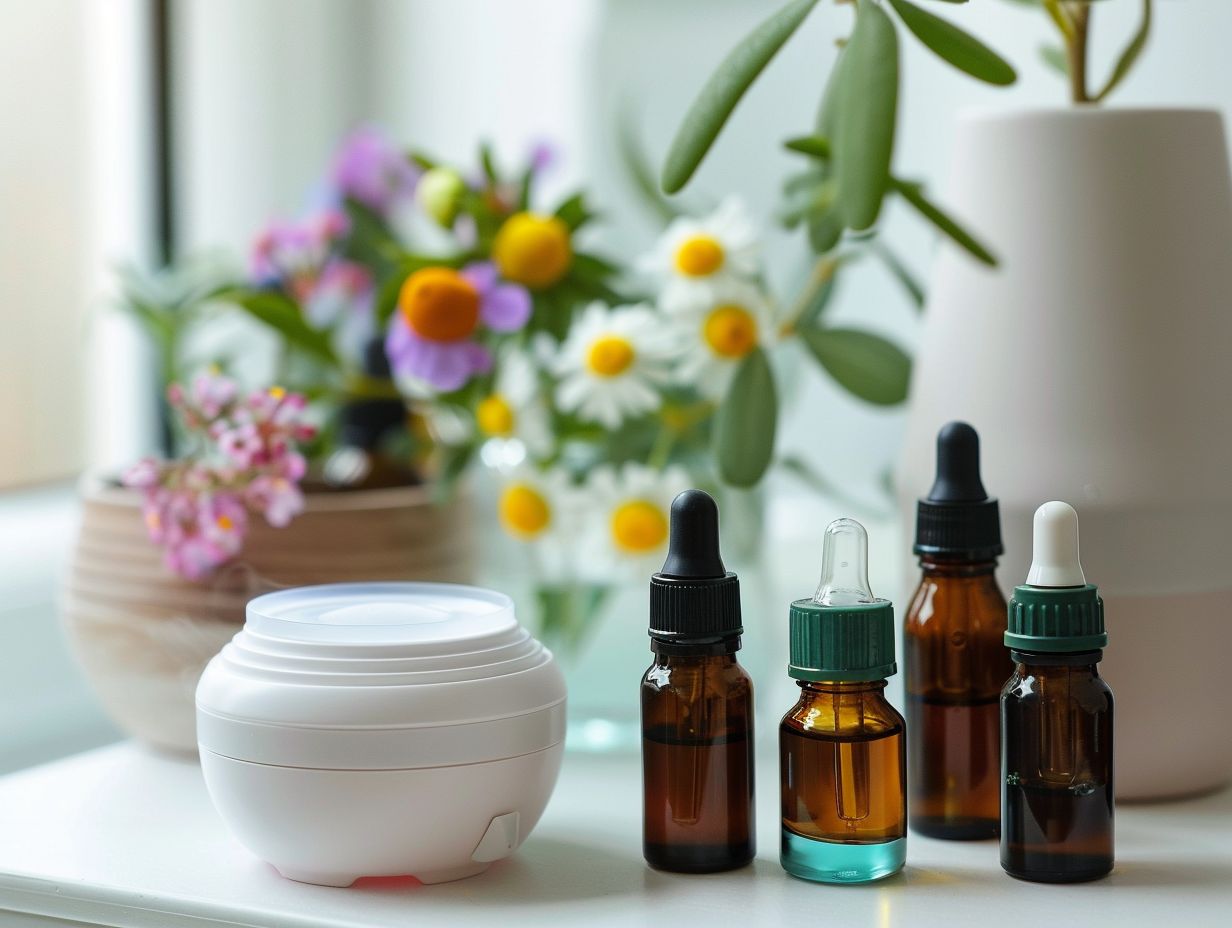
In terms of dilution, it is crucial to consider the potency of the essential oils. For most essential oils, a general rule of thumb is to dilute them in a carrier oil at a ratio of 2-3%. This means that for every drop of essential oil, you would use about 15-20 drops of carrier oil. This dilution helps to reduce the risk of skin sensitization, especially for those with sensitive skin.
The frequency of nebulizer use should also be taken into account. Experts recommend limiting nebulizer sessions to 2-3 times a day, with each session lasting around 15-20 minutes to prevent overexposure to the essential oils. Consistency in dosing and proper dilution are key factors in maximizing the benefits of nebulization therapy.
How Often Should You Use Essential Oils in a Nebulizer?
The frequency of using essential oils in a nebulizer depends on individual needs and the severity of respiratory symptoms. For symptomatic relief, usage can range from once a day to several times a week.
It’s important to consider the specific respiratory condition being treated and the desired therapeutic effects when determining the frequency of nebulizing essential oils. For acute respiratory issues like a cold or sinus congestion, using the nebulizer 2-3 times a day may provide rapid relief. For chronic conditions such as asthma or allergies, a lower frequency, like once a day or every other day, may be more suitable for long-term management.
What Are the Alternatives to Using Essential Oils in a Nebulizer?
Apart from essential oils, natural alternatives like carrier oils, herbal extracts, or Ayurvedic oils can also be used in nebulizers for respiratory therapy and aromatherapy purposes.
Carrier oils, known for their neutral scent and high compatibility with skin, make great substitutes for essential oils in nebulizers, providing moisture and lubrication to the respiratory tract.
Herbal extracts, such as eucalyptus, peppermint, or chamomile, offer unique therapeutic properties that can help alleviate respiratory conditions when diffused through a nebulizer.
Ayurvedic oils enriched with traditional herbs and botanicals like tulsi, ginger, or sandalwood bring a holistic approach to respiratory care, promoting relaxation and overall well-being.
Are There Any Natural Oils That Can Be Used in a Nebulizer?
Natural oils such as Ayurvedic formulations, Eucalyptus oil, and Tea tree oil can be used in nebulizers to provide aromatic therapy and respiratory support, enhancing the overall well-being of individuals.
In terms of Ayurvedic formulations, they are known for their balancing and soothing properties, making them ideal for promoting respiratory health. Eucalyptus oil is widely recognized for its decongestant qualities, effectively clearing airways and easing breathing difficulties. On the other hand, Tea tree oil boasts potent antimicrobial properties, helping to cleanse the respiratory system and alleviate symptoms of coughs and colds.
These natural oils not only offer therapeutic benefits but also fill the air with refreshing scents. The invigorating aroma of Eucalyptus oil can promote mental clarity and boost energy levels, while Tea tree oil provides a crisp, revitalizing fragrance that uplifts the senses.
What Are the Benefits of Using Natural Oils in a Nebulizer?
Utilizing natural oils in a nebulizer can offer therapeutic benefits, antiviral properties, and relief from respiratory symptoms, making them effective alternatives to essential oils for holistic wellness and aromatherapy.
Unlike essential oils that are typically diluted and can cause irritation, natural oils used in nebulizers retain their full potency, delivering a more concentrated dose for enhanced health benefits. The antiviral actions of natural oils help purify the air, reducing the presence of harmful pathogens and promoting a cleaner environment. These oils can provide respiratory support by aiding in mucus clearance and soothing inflammation, offering relief from coughs, congestion, and asthma symptoms.
Frequently Asked Questions
Can You Put Essential Oils in a Nebulizer?
Yes, you can put essential oils in a nebulizer. However, it is important to use caution and follow proper guidelines when doing so.
What is a nebulizer and how does it work?
A nebulizer is a device that turns liquid medication into a fine mist that can be inhaled directly into the lungs. It is commonly used to treat respiratory conditions such as asthma and COPD.
Can any type of essential oil be used in a nebulizer?
No, not all essential oils are suitable for use in a nebulizer. It is important to choose high-quality, pure essential oils that are safe for inhalation. Oils that contain carrier oils or synthetic fragrances should not be used.
What are the benefits of using essential oils in a nebulizer?
Using essential oils in a nebulizer can provide various health benefits, including improving respiratory conditions, boosting mood and energy, and promoting relaxation and sleep.
Are there any risks or side effects when putting essential oils in a nebulizer?
While essential oils can provide health benefits, they can also be potent and may cause adverse reactions if not used properly. It is important to dilute essential oils properly and use caution when inhaling them.
How should I properly use essential oils in a nebulizer?
To use essential oils in a nebulizer, add a few drops of the oil to the designated compartment or cup and follow the manufacturer’s instructions. It is important to clean the nebulizer after each use to prevent contamination.

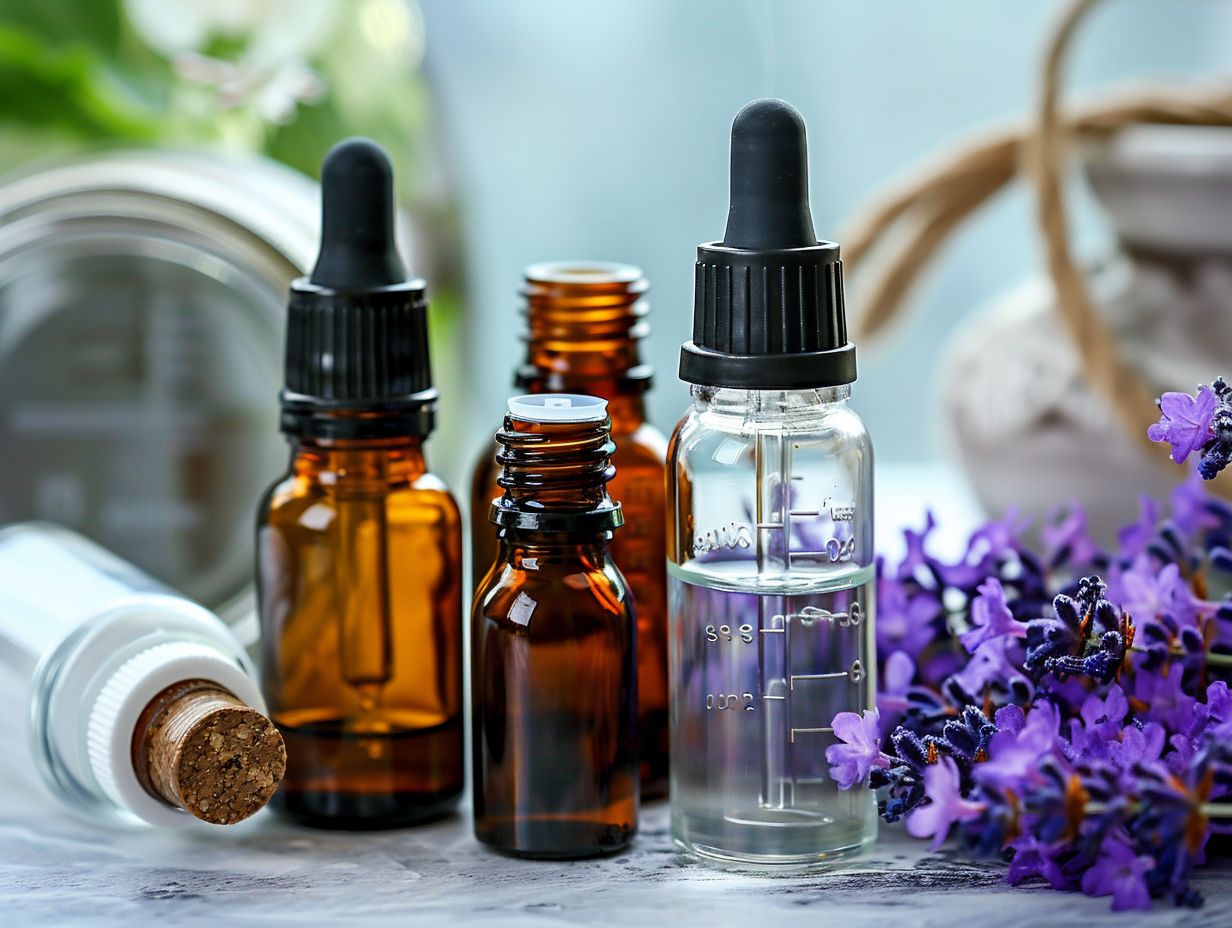
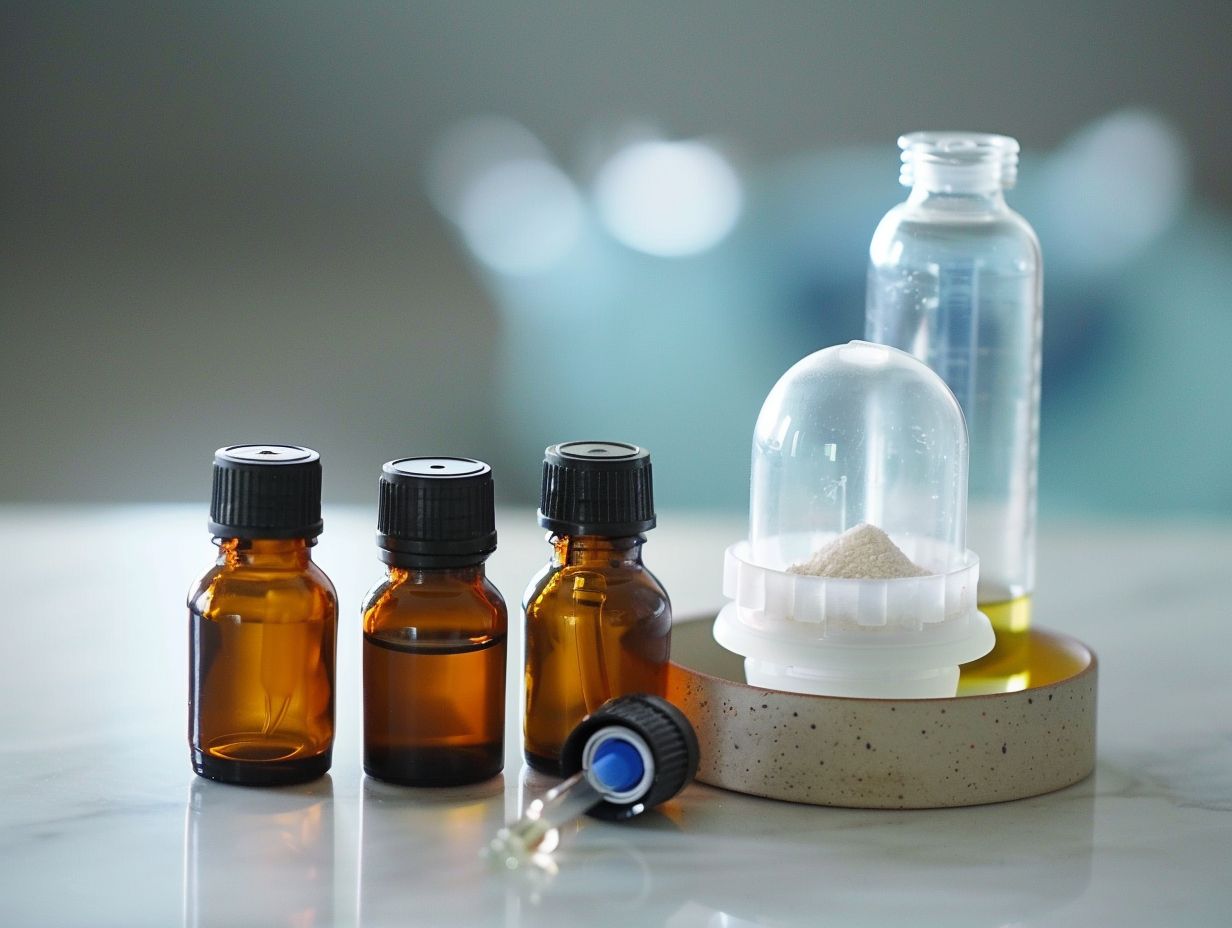
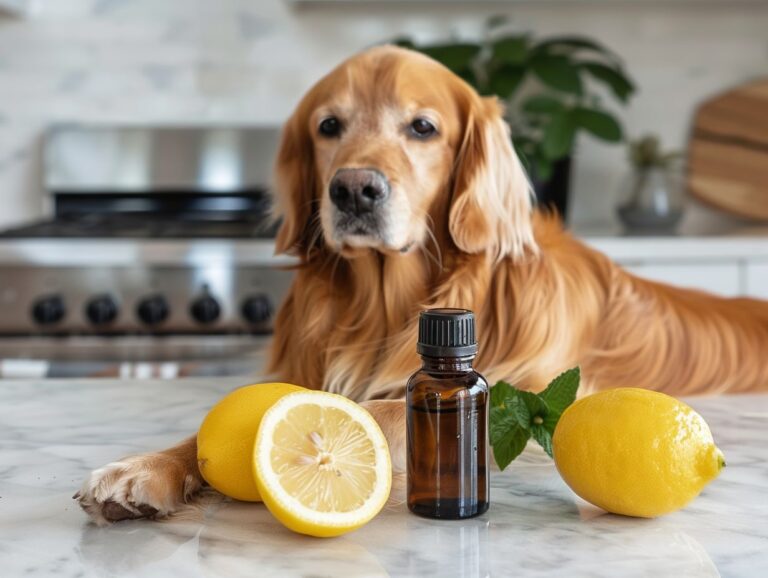


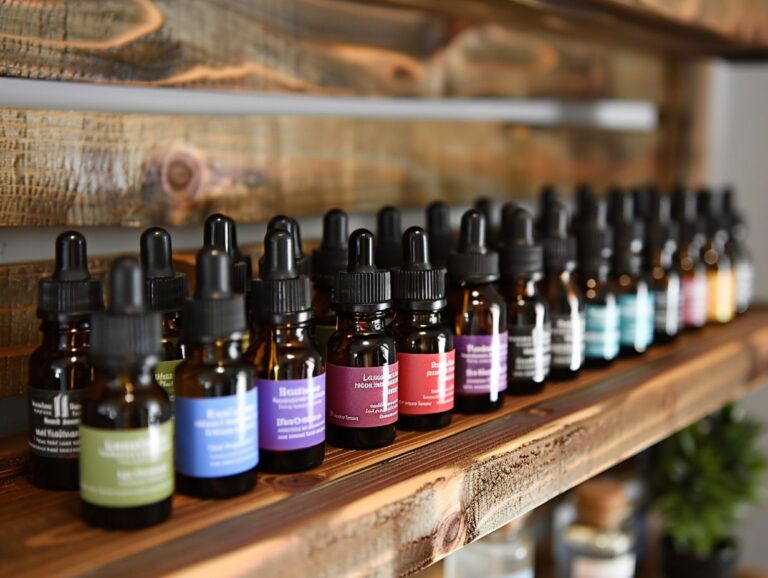
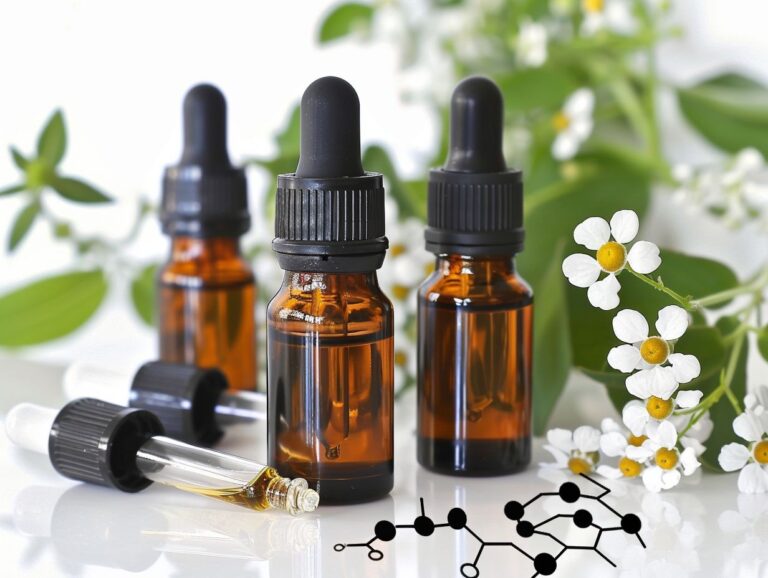

One Comment